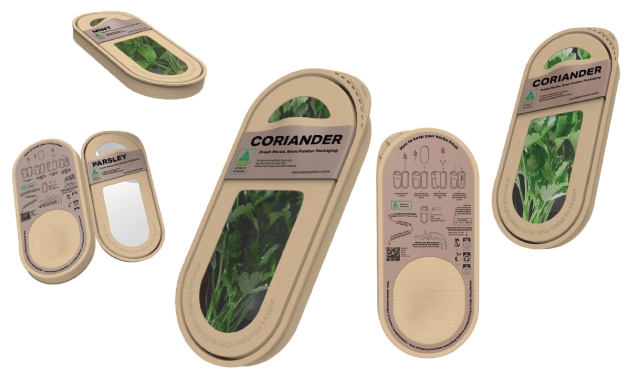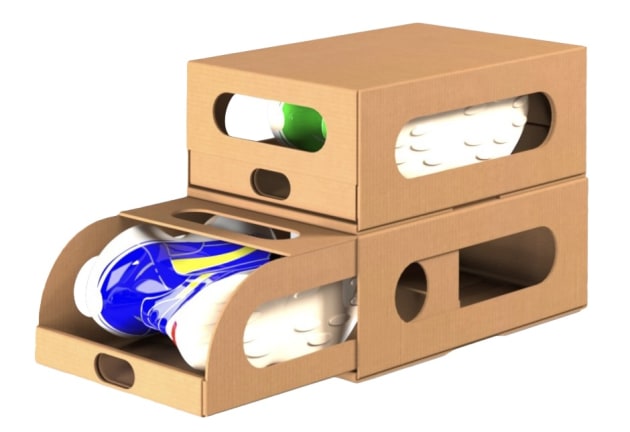The Australasian Institute of Packaging’s (AIP) support for students in their packaging design projects has paid dividends, with a record set of wins in the latest round of the WorldStar Awards.
Beating over 400 global entries, 42 university students from Royal Melbourne Institute of Technology (RMIT), the University of New South Wales (UNSW), and Monash University have elevated Australia’s standing in the prestigious WorldStar Student Awards. The students secured one Bronze overall best in show, two Silver category awards (household and food packaging), and 19 Certificates of Merit – a record-breaking year for Australian students. This achievement highlights the AIP commitment to fostering the next generation of packaging professionals.
The AIP education team guided students through projects on beverage packaging for carbonated products, save food packaging, and sustainable packaging design. Students first entered the Australasian Packaging Innovation & Design (PIDA) Student Awards, with winners then eligible for the WorldStar Student Awards.

Fresh Herbs, Fresher Packaging
In an Australian first, RMIT Industrial Design students Cameron Campbell, Nadia De Fazio, and Cynthia Mullaly developed a Save Food Packaging solution that won a Bronze Overall and a Silver in the Food Packaging category.
Their project, entitled Fresh Herbs, Fresher Packaging, addressed the issue of food waste, specifically fresh herbs, which are the second most wasted food in Australia according to End Food Waste Australia. The team identified that while current herb packaging is lightweight and effective for transport, it fails to preserve freshness at home. Inspired by the ‘wet-paper-towel’ method used by chefs, the team designed a packaging solution that mimics this approach while maintaining visibility and convenience.
The pack design comprises a rigid pack structure to prevent crushing during transit and storage, and includes a plantable seed tab to encourage home gardening. On-pack communication featuring recipes and usage tips drives consumer engagement, while the paper pulp material delivers eco-conscious appeal and recyclability. It’s also stackable for secondary packing efficiency.
Trials of the packaging solution showed herbs stored in the fridge remained indistinguishable from fresh store-bought herbs after five weeks.
“By embedding academic research and industry insights into the RMIT Industrial Design Studio, our students developed sustainable packaging solutions that significantly reduce food waste. Their recognition through national and international awards showcases the impact of industry collaborations,” said Dr Caroline Francis, interim associate dean of Industrial Design at RMIT.
Bio-Soul Reusable Shoe Box

UNSW Bachelor of Design student Christopher Leong created the Bio-Soul Reusable Shoe Box, earning a Silver award in the Household category.
With guidance from the AIP education team, Leong embedded the 10 Sustainable Packaging Design principles and the 2025 National Packaging Targets into his project. His focus was on sustainability, functionality, and aesthetics to transform the conventional shoe box into a reusable storage solution.
Key design features of the Bio-Soul Reusable Shoe Box include a sliding drawer and casing for easy access to stored shoes; tabs and slots for stackable storage; side and front windows to view contents without opening the box; and minimal printing and glue-free construction, ensuring recyclability.
“Incorporating real-world industry insights through the AIP allowed our students to benchmark their skills against global peers. These collaborations are invaluable in nurturing professional growth and providing hands-on learning experiences,” said Miles Park, senior lecturer in Industrial Design at UNSW.
Commenting on the value of the PIDA student Awards program, Shahnaz Mansouri, course coordinator, Master of Food Science and Agribusiness, at Monash University said, “The PIDA Student Awards provided students with invaluable training, from concept development to commercialisation. Winning these awards strengthens their career prospects in the packaging industry.”
Rod Heath, general manager, Monash Food Innovation, Monash University, added, “The collaboration with the AIP gave students access to industry expertise, inspiring them to create functional and sustainable packaging solutions. The PIDA and WorldStar Student Awards serve as a stepping stone for their careers.”
Encouraging student participation
The AIP congratulates all 42 students for their achievements. Any TAFEs, colleges, design schools, or universities across ANZ interested in participating in the 2025 round of the Australasian Packaging Innovation & Design (PIDA) Student Awards are encouraged to contact the AIP.
These awards not only celebrate student innovation but also provide a critical bridge between academia and industry. By participating, students gain exposure to real-world challenges, develop practical skills, and build professional networks that will benefit their careers. The recognition achieved serves as a launchpad for future leaders in sustainable packaging design. With each passing year, Australia continues to strengthen its reputation as a hub for creative and environmentally responsible packaging solutions.
This article was first published in the March-April 2025 print issue of PKN Packaging News, p40.






